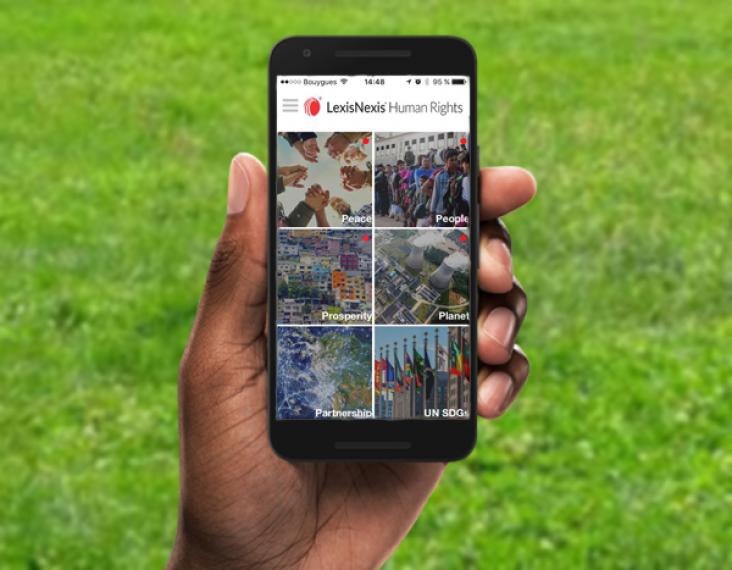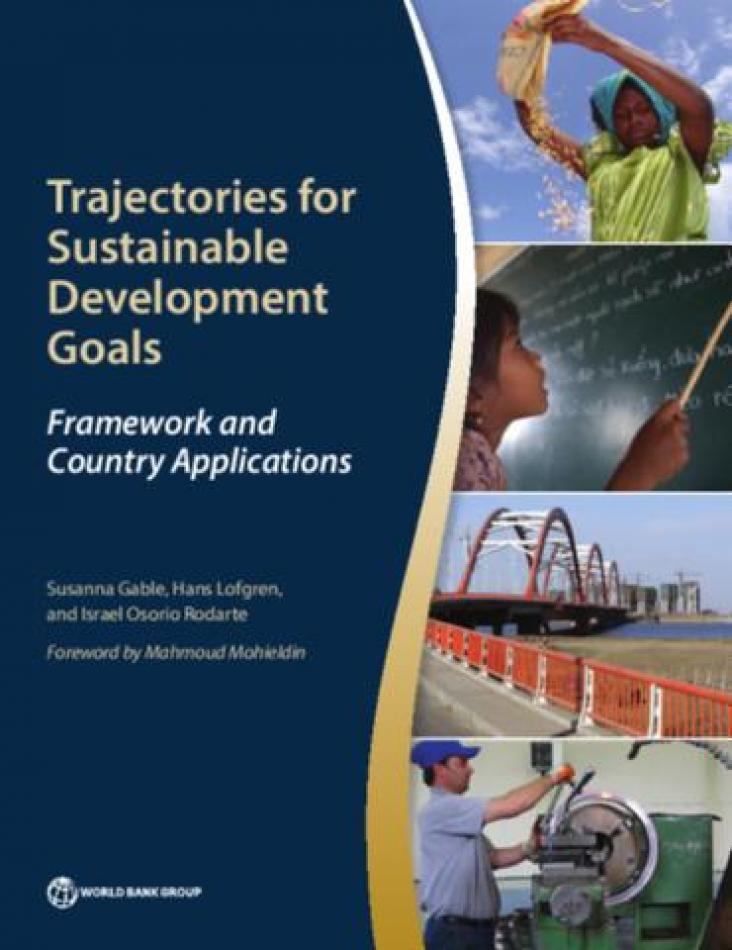Partner content
United Nations UniversityUnited Nations University, New York, October 2017.
Focussing on SDGs 16 (Peace, Justice and Strong Institutions) and 17 (Partnerships for the Goals), this research report explores how organized crime and corruption will impact governance in 2050 and what states can – and should – do about it now.

The LexisNexis Newsdesk® app featuring human rights is a free app which tracks news about the 17 SDGs and brings relevant stories from across the world in real time to your mobile device. Media monitoring using LexisNexis technology provides insights and news that will inform all those who are working to advance the SDGs. Target SDG 17.16 includes encouraging multi-stakeholder partnerships that mobilize and share knowledge, expertise, technology and financial resources, to support the achievement of the sustainable development goals in all countries.

The goal of SDG 16.3, to promote the rule of law at the national and international levels and to ensure equal access to justice for all, relies to a large extent on access to the primary materials. The stability of the legal system of a State is usually assessed by the availability of its laws and their application and LexisNexis is proud to have been chosen as a partner to continue publication of the authorised Fiji Law Reports. Partnership for the goals is key to their success, as envisaged by SDG 17.

In July the 2017 Sustainable Development Goals (SDG) Business Forum recognised the critical role of business in delivering on the promise of sustainable and inclusive development. In this article, we elaborate on the SDG business case, and how businesses can engage with the SDG framework; driving business growth and productivity, whilst contributing to the better world envisaged by the 2030 Agenda for Sustainable Development.

This book presents the country development diagnostics post-2015 framework, developed by the World Bank Group to assess the country-level implications of the post-2015 global agenda, as well as brief, ‘at-a-glance’ applications of the framework to ten countries: Ethiopia, Jamaica, the Kyrgyz Republic, Liberia, Nigeria, Pakistan, Peru, the Philippines, Senegal, and Uganda.

RELX Group launched the SDG Resource Centre at its Inspiration Day on 21 June 2017, in partnership with UN Global Compact UK, the Business and Sustainable Development Commission and the Responsible Media Forum. The launch brought together business, government and civil society with keynote speeches from SDG thought leaders whose calls to action underline the importance of SDG 17.6 to enhance the global partnership for sustainable development, complemented by multi-stakeholder partnerships that mobilize and share knowledge, expertise, technology and financial resources.
In March 2017, the inaugural Corporate Human Rights Benchmark (CHRB) was launched, a result of collaboration between leading institutional investors, human rights specialists and NGOs to produce an assessment framework for private sector performance on human rights. The Benchmark analysed 98 of the Global 500 largest publicly listed companies on their human rights performance. This article provides insight into the results of the first analysis and explain why the CHRB matters.
The Business and Sustainable Development Commission’s Executive Summary sets out the challenges faced by business in today’s world, and the opportunities that the SDGs offer for a sustainable and successful business environment. Partnerships forged by business are integral to the success of all SDGs and in particular SDG 17.
The Business and Sustainable Development Commission’s Report identifies the major market opportunities opened up by delivering the SDGs, and the importance of sustainable finance and renewing the social contract. It sets out the key actions for government, business and civil society. Partnerships forged by business are integral to the success of all SDGs and in particular SDG 17.
The Business and Sustainable Development Commission’s Africa Focus Report identifies the major market opportunities Africa, where sustainable business models could open up an economic prize of at least US$1.1 trillion and create over 85 million new jobs by 2030. Partnerships forged by business are integral to the success of all SDGs and in particular SDG 17.
